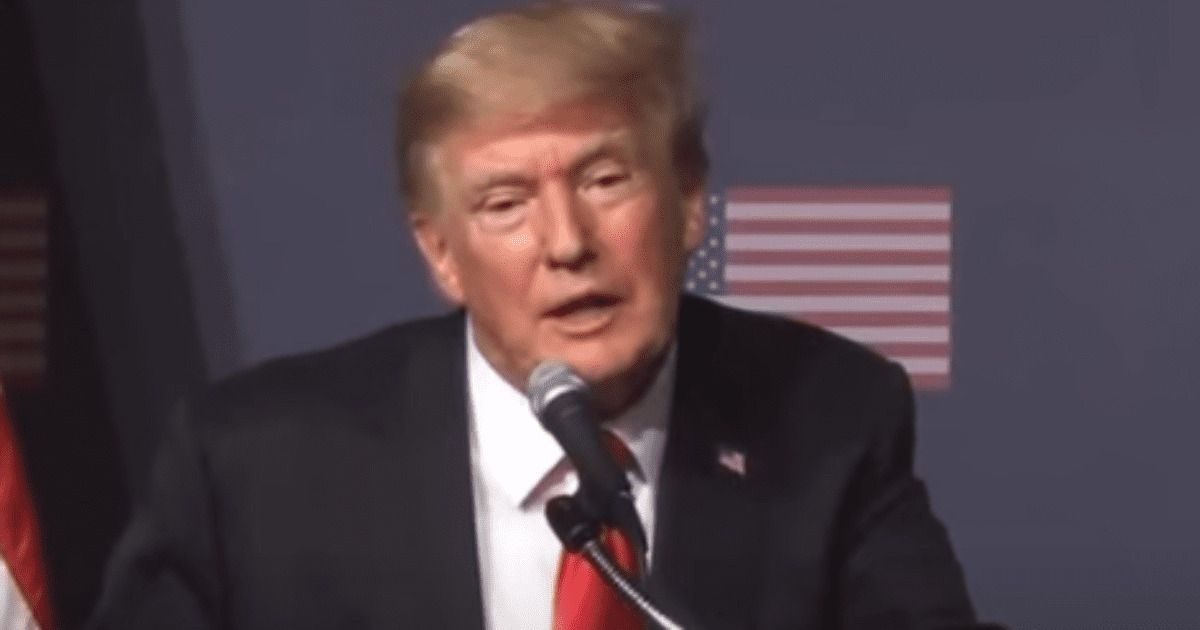The warrant wasn’t even legal?
This is what constitutional scholars and attorneys David B. Rivkin Jr. and Lee A. Casey now claim via an op-ed piece that they penned for The Wall Street Journal—one of the world’s premier outlets.
According to them, the Mar-A-Lago warrant shouldn’t have been signed in the first place and President Trump had every legal right to be in possession of the documents he had.
Rivkin and Casey cite the Presidential Records Act of 1978 as the basis for President Trump’s innocence and according to that statute, he isn’t at fault for anything…
The Department of Justice and Biden’s regime just seem to be fishing for distractions—any diversion to take the attention away from their dismal performance in office.
They shouldn’t have signed off on this, but who knows? Perhaps this one mistake will be their entire undoing…
Here’s what President Trump had to say in a recent Truth Social post:

BREAKING REPORT: Trump Warrant HAD NO LEGAL basis… 'Federal Law gives Mr. Trump right of access to them. His possession of them is CONSISTENT WITH THAT RIGHT AND THEREFORE LAWFUL regardless of the statues the FBI cites in it's warrant'.. -THE WALL STREET JOURNAL
— Chuck Callesto (@ChuckCallesto) August 24, 2022
David Rivkin & Lee A. Casey penned this piece which recently appeared in The Wall Street Journal:
The PRA dramatically changed the rules regarding ownership and treatment of presidential documents.
Presidents from George Washington through Jimmy Carter treated their White House papers as their personal property, and neither Congress nor the courts disputed that.
In Nixon v. U.S. (1992), the U.S. Circuit Court of Appeals for the District of Columbia held that Richard Nixon had a right to compensation for his presidential papers, which the government had retained under the Presidential Recordings and Materials Preservation Act of 1974 (which applied only to him).
“Custom and usage evidences the kind of mutually explicit understandings that are encompassed within the constitutional notion of ‘property’ protected by the Fifth Amendment,” the judges declared.
Was the FBI justified in searching Trump’s residence at Mar-a-Lago? The warrant itself suggests the answer is likely no, write @DavidRivkin and Lee A. Caseyhttps://t.co/ChBdKQFzaZ
— Wall Street Journal Opinion (@WSJopinion) August 23, 2022
The Trump warrant had no legal basis. The magistrate should have never signed this warrant. Treason Biden did know all about this raid on Trump's home in Florida! He tried to say thru his spokeswoman that he had no knowledge of this raid! This was another lie by Treason Biden!Jim
— James Dykes (@JimDykes51) August 24, 2022
Breitbart explained:
President Trump’s attorneys filed a motion Monday with the federal court in Florida that authorized the search warrant, asking him to appoint a “special master” to return seized materials that implicate attorney-client privilege or executive privilege.
They argue that the president’s Fourth Amendment rights were violated — that the search warrant was so broad as to amount to a “general search,” prohibited since the days of “red-coated soldiers” who provoked the Bill of Rights in the first place.



Join the conversation!
Please share your thoughts about this article below. We value your opinions, and would love to see you add to the discussion!